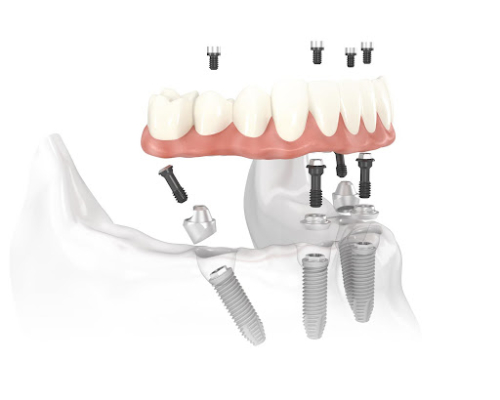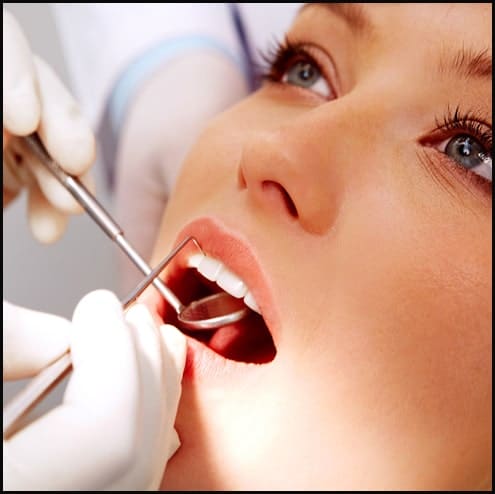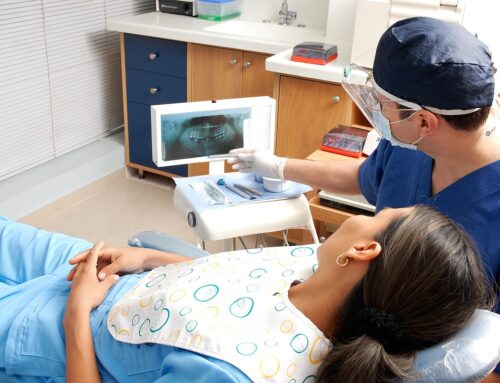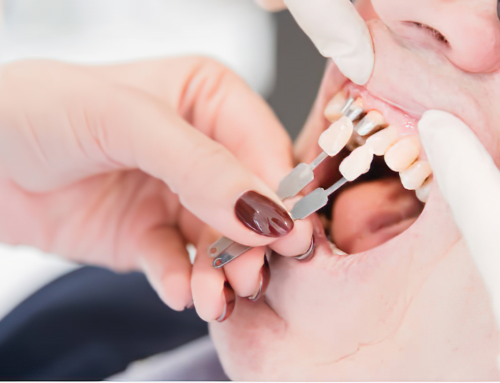All-on-4 Dental Implants: A Comprehensive Guide
The All-on-4 dental implant system represents a groundbreaking solution in dental technology, offering a lifeline to those suffering from tooth loss, whether due to gum disease, injury, or other causes. This guide aims to provide a thorough understanding of All-on-4 dental implants, covering every aspect from the basics of the procedure to post-operative care.
What are All-on-4 Dental Implants?
All-on-4 dental implants represent a transformative solution for individuals grappling with the challenges of tooth loss. This cutting-edge method utilizes a minimal number of implants – just four titanium screws – strategically placed in the jawbone. These implants serve as robust anchors for a full arch of prosthetic teeth. This design not only offers a permanent and functional solution but also enhances aesthetic appeal, revitalizing the patient’s smile and overall facial structure.
Unlike traditional removable dentures, which can often be unstable and uncomfortable, All-on-4 implants provide a secure, fixed alternative. This stability is particularly beneficial for individuals who have struggled with the inconveniences of dentures, such as slippage, difficulty in eating certain foods, or speech impediments. Furthermore, the fixed nature of All-on-4 implants means there is no need for the adhesives often required with dentures, simplifying daily oral hygiene routines.
In cases of tooth loss due to gum disease or other dental issues, All-on-4 dental implants offer a much-needed remedy. By directly stimulating the jawbone, these implants help in maintaining bone density, thus preventing the bone loss that often accompanies tooth loss and gum disease. This preservation of bone structure not only supports oral health but also contributes to maintaining the natural shape of the face, which can change with significant tooth loss.
How Do All-on-4 Dental Implants Work?
The process begins with an initial consultation with a dental professional, who assesses the patient’s bone density and overall oral health. The procedure involves placing four titanium implants strategically in areas of the jaw with the highest bone density. These implants act as sturdy anchors for the prosthetic teeth.
Benefits of All-on-4 Dental Implants
All-on-4 implants offer numerous benefits:
- High Quality and Durability: Made from titanium, these implants are strong and long-lasting.
- Improved Oral Health: They help preserve jawbone structure and prevent further bone loss, a common issue with tooth loss and gum disease.
- Prevention of Bone Loss: By stimulating the jawbone, these implants help maintain its density, preventing the bone loss commonly associated with tooth loss and gum disease.
- Improved Functionality and Comfort: Unlike removable dentures, All-on-4 implants are fixed in place, offering better stability and comfort while eating and speaking.
- Aesthetic Appeal: The prosthetic teeth look natural and can enhance facial appearance, avoiding the sunken look often seen with tooth loss.
- Long-term Solution: These implants are designed to last, offering a durable and long-term solution for tooth loss.
- Convenience and Maintenance: The fixed nature of these implants makes them easier to maintain compared to removable dentures, requiring regular but straightforward dental hygiene.
Who is a Good Candidate for All-on-4 Dental Implants?

The All-on-4 treatment option is ideal for:
Those with significant tooth loss who are seeking a more stable alternative to removable dentures.
Individuals with enough bone density to support the implants, although bone grafting is not usually required with this method.
Patients who prefer a less invasive option compared to traditional dental implant treatments.
Those looking for a quicker solution to replace a full arch of teeth, as the All-on-4 method often requires fewer surgical procedures.
The All-on-4 Dental Implant Procedure
The All-on-4 dental implant surgery is a complex surgical procedure requiring precise planning and execution. It typically involves:
- Initial Consultation: An in-depth assessment by a dental professional to determine suitability for the procedure.
- Custom Treatment Plan: Development of a personalized plan, considering the patient’s specific dental needs and bone structure.
- Surgical Procedure: Placement of the four titanium implants in areas of the jaw that provide optimal support.
- Healing and Integration: A period of healing where the implants integrate with the jawbone.
- Attaching the Prosthetic Arch: Once healing is complete, a full arch of prosthetic teeth is securely attached to the implants.
- Follow-up Care: Regular check-ups to ensure the health and function of the implants and prosthetics.
Cost of All-on-4 Dental Implants
The cost varies depending on individual cases and geographic location. It is generally higher than traditional dentures but offers more long-term value due to its durability and benefits.
- Comprehensive Pricing Structure: The cost of All-on-4 dental implants includes various factors such as the surgical implant placement, high-quality titanium implants, and the fabrication of the prosthetic teeth.
- Investment in Oral Health: While the initial cost may be higher compared to traditional dentures, All-on-4 implants offer a more durable, long-term solution, potentially reducing future dental expenses.
- Payment Options: Many dental practices, including Manningham Dental Specialists, provide payment plans and finance options to make the treatment more accessible.
- Insurance and Superannuation: Some insurance plans may cover a portion of the cost. In certain cases, patients can access their superannuation funds for medical treatments like All-on-4 implants.
- Customized Treatment Plans: The final cost can vary depending on individual needs and treatment complexities.
Recovery from All-on-4 Dental Implant Surgery
Post-surgery, patients may experience discomfort and swelling, which typically subsides within a few days. Complete healing and integration of the implants can take several months, during which a temporary arch of teeth is often used.
- Immediate Post-Surgery Care: Following the surgical procedure, patients may experience swelling and discomfort, which can be managed with medication.
- Healing Process: The healing phase, where the implants integrate with the jawbone, typically spans a few months. During this period, patients are often fitted with temporary teeth.
- Follow-Up Appointments: Regular check-ups are crucial for monitoring the healing process and ensuring the implants are integrating properly.
- Adjustment Period: Patients may need time to adjust to their new teeth in terms of speech and eating habits.
- Long-Term Healing: Complete osseointegration, where the implants fully bond with the jawbone, is essential for the long-term success of the All-on-4 treatment.
Caring for Your All-on-4 Dental Implants
Caring for implants involves regular dental hygiene practices such as brushing, flossing, and routine dental check-ups to ensure their longevity and reduce the risk of complications.
- Daily Oral Hygiene: Routine brushing and flossing are vital to maintain both the health of the implants and the surrounding gum tissue.
- Regular Dental Visits: Professional cleanings and check-ups are recommended to ensure the longevity of the implants and prosthetics.
- Avoiding Harmful Habits: Smoking and excessive alcohol consumption can impede healing and affect the longevity of the implants.
- Proper Eating Habits: Initially, patients may need to adhere to a soft diet to facilitate healing. Gradually, more varied foods can be reintroduced.
- Immediate Attention to Issues: Any discomfort, loosening, or other issues with the implants or prosthetics should be addressed promptly by a dental professional.
All-on-4 Dental Implants vs Traditional Dental Implants
The main difference lies in the number of implants used and the need for bone grafting. All-on-4 uses fewer implants and often eliminates the need for bone grafting, making it a more efficient and less invasive option.
-
- Number of Implants: All-on-4 utilizes four implants per arch, compared to 6-8 implants for a full arch in traditional methods.
- Bone Grafting Requirements: All-on-4 often eliminates the need for bone grafting, even in patients with reduced bone density, unlike traditional implants.
- Treatment Time and Complexity: The All-on-4 procedure is typically faster and less complex, often completed in fewer appointments.
- Cost Efficiency: While the upfront cost of All-on-4 can be higher, it may be more cost-effective in the long run due to reduced surgical and material needs.
- Long-Term Oral Health Benefits: Both methods offer significant benefits in terms of oral health, aesthetics, and functionality, but All-on-4 provides a quicker solution for complete arch rehabilitation.
All-on-4 dental implants represent a significant advancement in dental restoration, offering a durable, functional, and aesthetically pleasing solution for those suffering from tooth loss. At Manningham Dental Specialists, we are dedicated to providing our patients with the highest standard of care, ensuring that each step of your All-on-4 journey is as smooth and comfortable as possible. Contact us to learn more about how this life-changing treatment can restore your smile and confidence.







Leave a Comments